The father of management thinking Peter Drucker famously said: “The greatest danger in times of turbulence is not turbulence itself, but to act with yesterday’s logic”. […]
Continue reading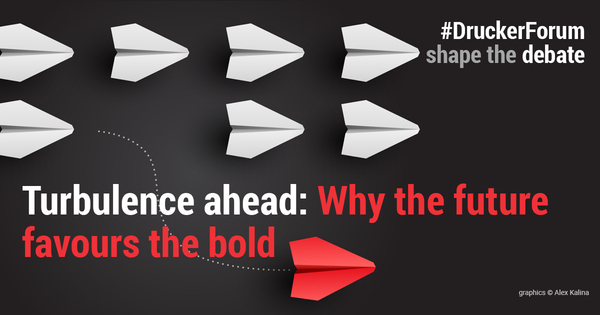

The father of management thinking Peter Drucker famously said: “The greatest danger in times of turbulence is not turbulence itself, but to act with yesterday’s logic”. […]
Continue reading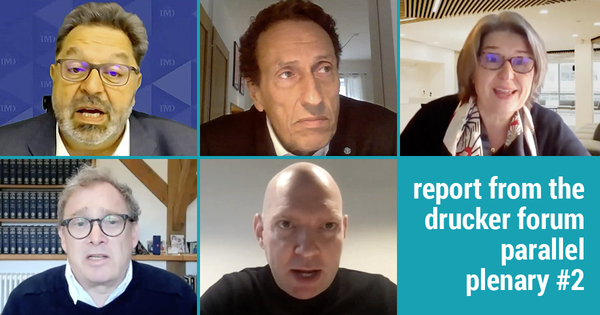
Digitalization fundamentally changes the nature of work and leadership. That’s a huge advantage for those people that get it. But it also challenges human responsibility[…]
Continue reading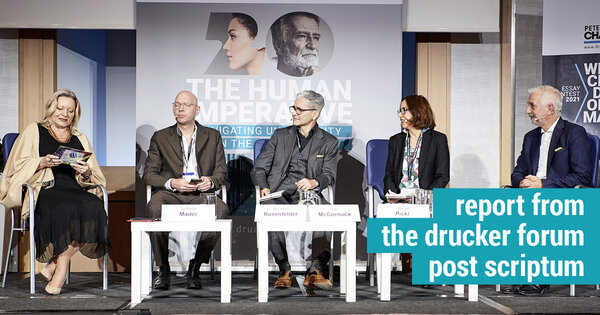
What have we learned at the Forum that is most exciting, concerning, surprising?[…]
Continue reading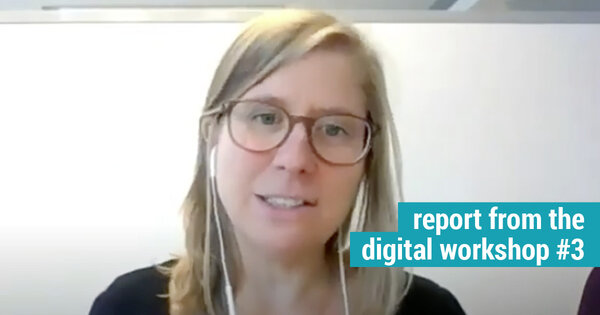
Given such a dynamic VUCA and COVID world, businesses and organizations needed to rapidly swerve to a distributed and remote workforce while simultaneously giving considerable thought to the future role of the office.[…]
Continue reading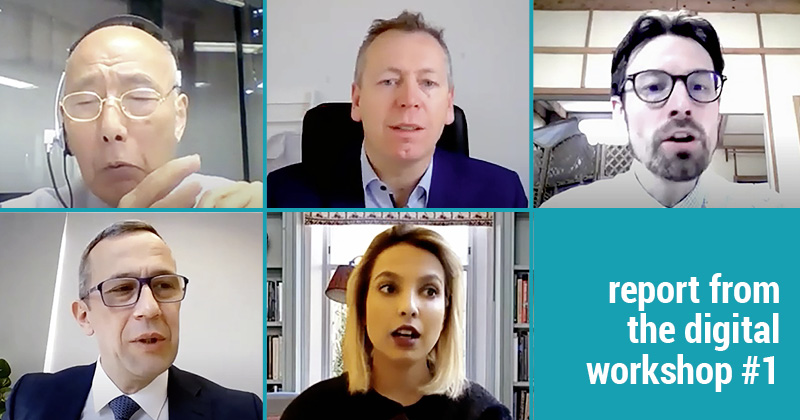
I have always found the most inspiring roundtable talks to be those where the speakers have diverse perspectives on an issue that is critical, even existential. That was the case for the digital workshop on 10 Nov at the 13th annual Peter Drucker forum.[…]
Continue reading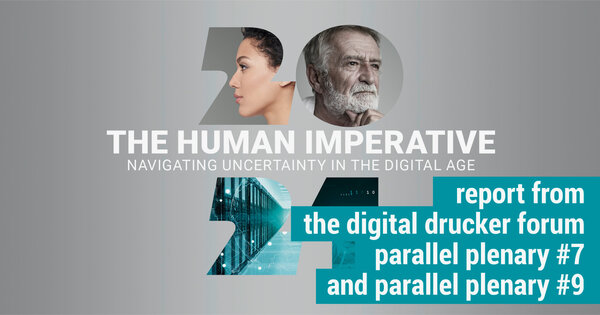
The 13th Global Peter Drucker Forum again raised business critical questions such as: “Can big businesses be humanized” and “How fast should you transform your business. The answers were: “YES you can humanize a big company “, and “you need to CHANGE your perception on how fast a strategic change of your business will be”.[…]
Continue reading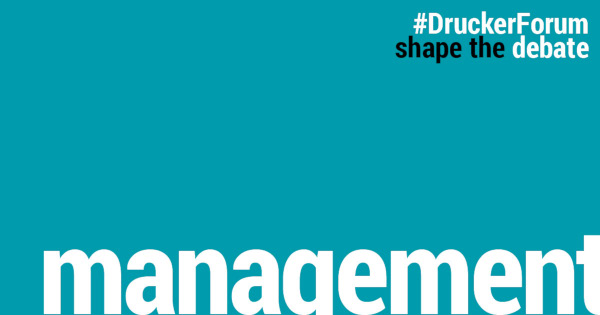
On the upper levels of management as well as in management literature, one will frequently hear the almost ritual complaint about the growing sluggishness of organizations, their lack of agility. […]
Continue reading